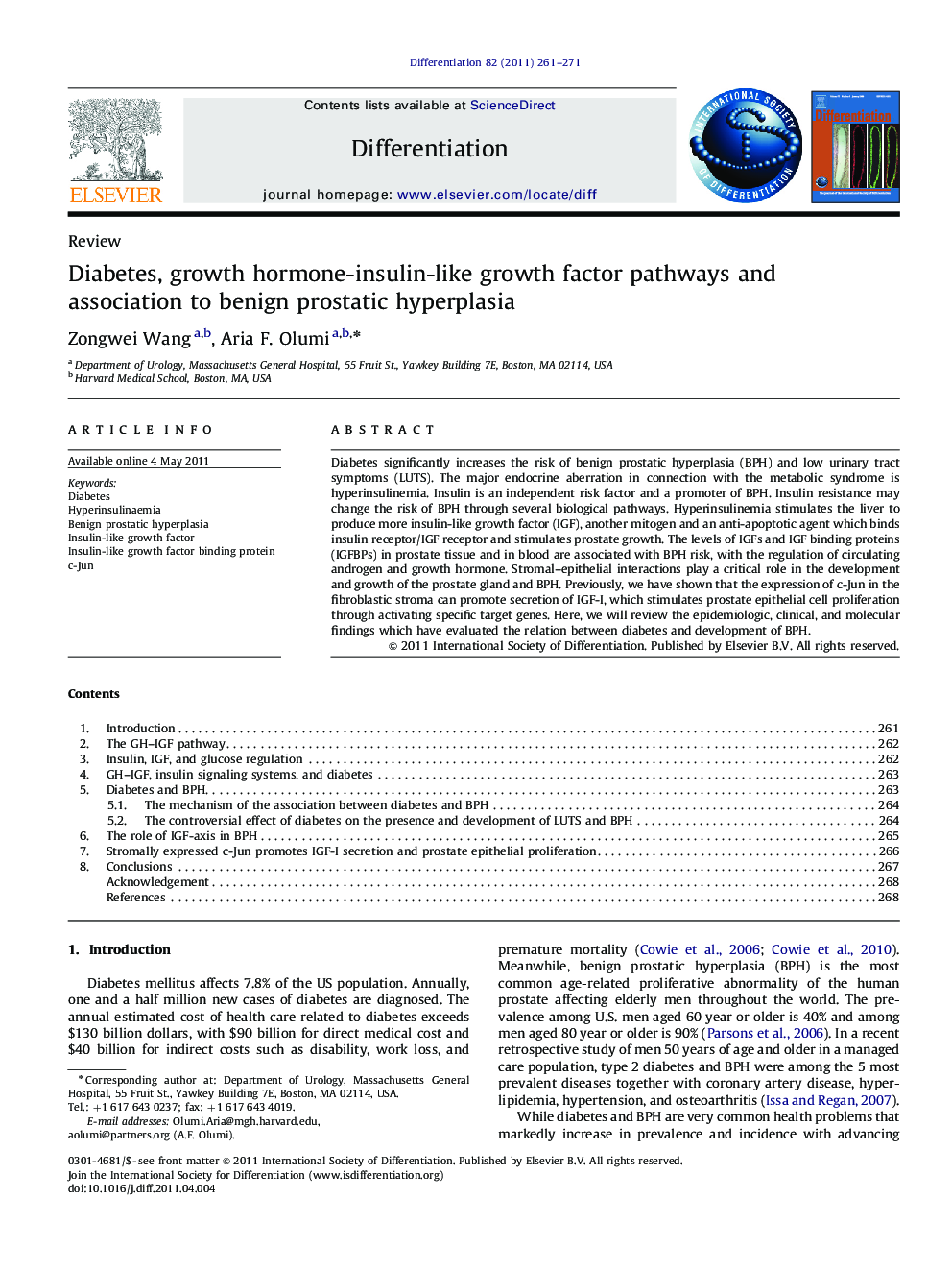| Article ID | Journal | Published Year | Pages | File Type |
|---|---|---|---|---|
| 2119468 | Differentiation | 2011 | 11 Pages |
Diabetes significantly increases the risk of benign prostatic hyperplasia (BPH) and low urinary tract symptoms (LUTS). The major endocrine aberration in connection with the metabolic syndrome is hyperinsulinemia. Insulin is an independent risk factor and a promoter of BPH. Insulin resistance may change the risk of BPH through several biological pathways. Hyperinsulinemia stimulates the liver to produce more insulin-like growth factor (IGF), another mitogen and an anti-apoptotic agent which binds insulin receptor/IGF receptor and stimulates prostate growth. The levels of IGFs and IGF binding proteins (IGFBPs) in prostate tissue and in blood are associated with BPH risk, with the regulation of circulating androgen and growth hormone. Stromal–epithelial interactions play a critical role in the development and growth of the prostate gland and BPH. Previously, we have shown that the expression of c-Jun in the fibroblastic stroma can promote secretion of IGF-I, which stimulates prostate epithelial cell proliferation through activating specific target genes. Here, we will review the epidemiologic, clinical, and molecular findings which have evaluated the relation between diabetes and development of BPH.
